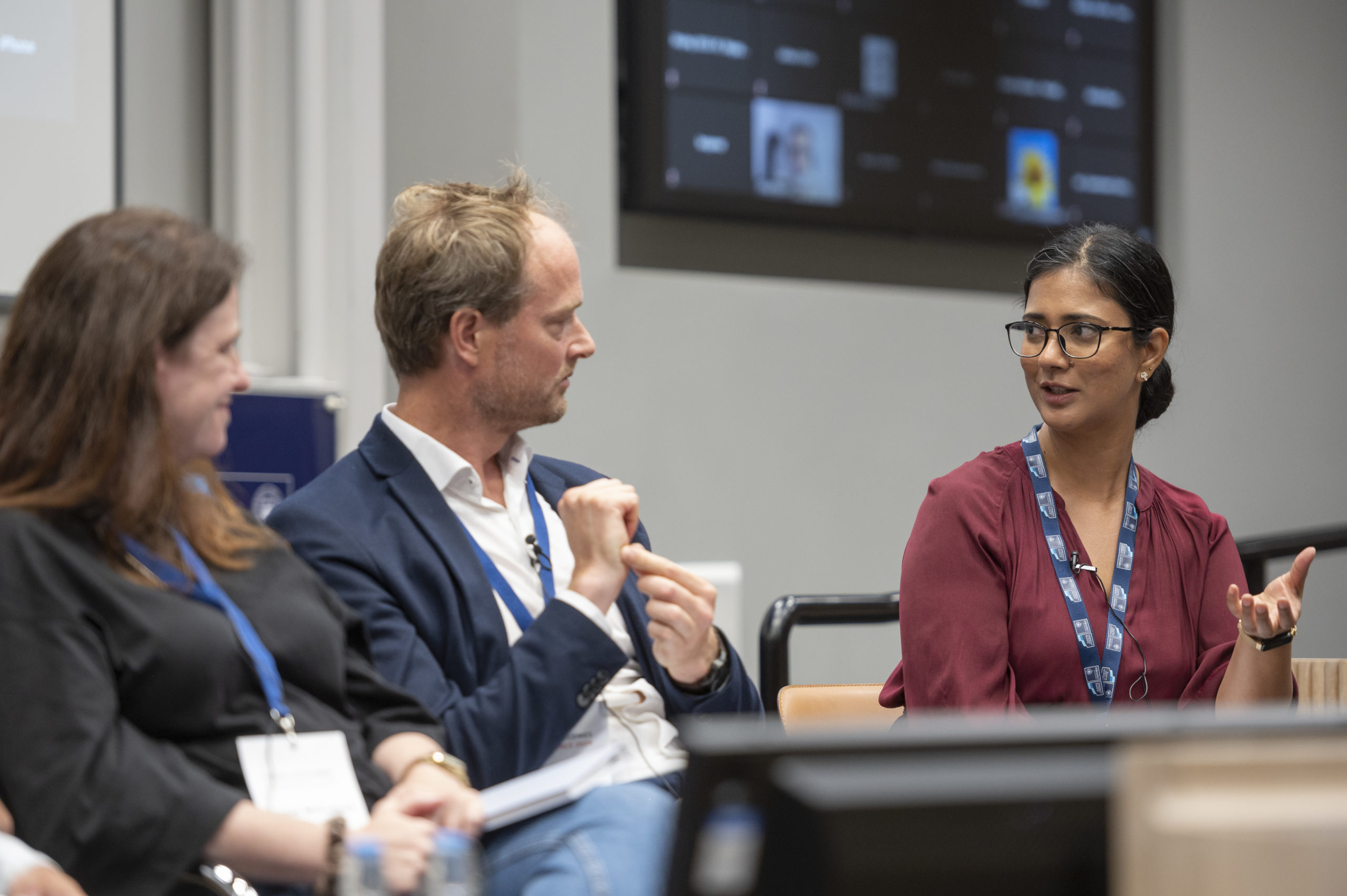Event Highlights: Social Outcomes Conference 2024. Strengthening partnerships for collaborative learning in outcomes-based financing for education projects
Strengthening partnerships for collaborative learning in outcomes-based financing for education projects
On 5th September 2024, NORRAG’s Dr Arushi Terway chaired a panel titled “Strengthening partnerships for collaborative learning in outcomes-based financing for education projects” at the Social Outcomes Conference 2024, organised by the Government Outcomes Lab at the Blavatnik School of Government, University of Oxford. The discussion encouraged panellists to share their experiences and reflect on opportunities and challenges for collaborative learning within multistakeholder partnerships in education projects funded through outcomes-based financing (OBF) approaches.
The panellists were Jacqui O’Hanlon, Dr Lynsey McCulloch and Dr Matthew Collins from the Royal Shakespeare Company (RSC), Dr Dhir Jhingran from the Language and Learning Foundation (LLF), Dr Vikas Maniar from Tata Institute of Social Sciences (TISS), Sietse Wouters from UBS Optimus Foundation and Dr Ozsel Beleli from the Education Outcomes Fund (EOF).
Engaging in collaborative learning
The session began with each organisation presenting how they engage in collaborative learning. For Jacqui O’Hanlon, Dr Lynsey McCulloch, and Dr Matthew Collins at the RSC, collaboration is at the core of their work. By engaging with teachers, school leaders, government departments and practitioners on theatre-based and language-based pedagogies, they encourage conversations about the potential impact of arts-based interventions in classrooms. RSC is currently reaching the end of the first year of an outcomes-based financing pilot, for which they worked with teachers to co-develop metrics for measuring the impact of arts-based interventions.
Dr Dhir Jhingran explained how LLF, a service provider for the LiftEd Development Impact Bond, embeds collaboration internally, with regular project meetings, and externally, by meeting with partners, engaging in various research consortiums and collaborating with the government in an effort to improve foundational learning at scale. Engaging in dialogue with stakeholders at different levels (teacher, school administrators, state and national governments), LLF are able to refine and adapt their interventions continuously. LLF was also the service provider for the Haryana Early Literacy Development Impact Bond. Dr Ozsel Beleli also expressed the importance of internal and external learning for EOF, recognising that the two are mutually supportive. Speaking to EOF’s work in early childhood care and education (ECCE), Dr Ozsel Beleli described the internal workshops that actively contribute to organisational learning. In parallel, EOF places value on peer-to-peer learning, having recently commissioned the Government Outcomes Lab, NORRAG and Ecorys to lead a Collective Learning Initiative, bringing together stakeholders at the intersection of OBF and ECCE, aiming to surface and analyse the existing landscape of OBF in ECCE. Additionally, as co-chair for the Education Finance Network’s Learning Group, EOF has contributed to the curation and dissemination of collective learning on OBF, having recently published two blogs on measurement and systems strengthening, two core themes from the Learning Group discussions. You can read more about EOF’s experience of collective learning in their latest blog, here.
Speaking from a researcher’s perspective, Dr Vikas Maniar (TISS) discussed how engaging researchers can test the promise of when and under what conditions outcomes-based financing models work. When working collaboratively and sharing data, research can contribute to filling information gaps, developing conceptual definitions, designing better models, and implementing successful projects. Sietse Wouters from UBS Optimus Foundation also highlighted the need for data sharing and transparency to continue shifting the narrative towards focusing on outcomes rather than activities. He also explained how collaborative learning could attract more investors by exemplifying the evidence of existing programmes. UBS Optimus Foundation has been involved in OBF in education since 2015, as the investor for the Educate Girls Development Impact Bond.
The value of collaboration
In a facilitated discussion by Dr Arushi Terway, panellists reflected on their perceived value of collaborative learning. Both Sietse Wouters and Dr Vikas Maniar reflected on the ability of collaboration to generate insights and evidence on OBF, to help better understand what works under what conditions, determining whether or when OBF may be the most appropriate tool to use. Dr Ozsel Beleli concurred, adding that collaborative evidence generation can also support more effective implementation of OBF by examining how it can be done better.
For RSC, shifting towards an outcomes-based approach holds the potential to diversify income streams as the newly implemented outcomes framework developed by RSC provides a rigorous evidence base for advocating the impact of arts-based interventions. RSC colleagues emphasised the importance of the opportunity to attract new investors, given reduced funding and investment into the arts sector in recent years. Sietse Wouters also highlighted the value of collaborating with researchers to build evidence on programme effectiveness and subsequently act as a means of attracting new investors to the field.
Collaborative learning can also develop shared value. Engaging teachers, administrators and different levels of government helps to build a shared vision rather than implementing a prescriptive programme that will ultimately have limited buy-in from the actors concerned, explained Dr Dhir Jhingran. He explains that LLF’s approach involves continuous dialogue, feedback loops and interaction with project stakeholders enabling them to review their interventions and adapt where challenges or obstacles may arise. Engaging and co-creating with teachers is equally important to RSC as they are the actors on the ground who have a deeper understanding of what works and what is needed. RSC colleagues expressed the need for, and future intention of, engaging the ultimate beneficiaries – young people – more in the future.
Enabling factors for collaborative learning
Across the discussion, five key enabling factors for collaborative learning arose. Firstly, finding common ground – having aligned interests can enable successful collaboration. Second, understanding the value of engagement. All parties should recognise the value of their participation and be motivated to set aside time to listen to and learn from others. Dr Ozsel Beleli suggested that an unsolved puzzle such as measurement, attribution, target setting and pricing could be one way to motivate engagement. Third, trust. Building a trust-based, rather than transactional-based ecosystem, where the heart of collaborative learning is built on trusting the expertise of others, the value of what is being shared and the benevolence and goodwill of others. Fourth, goodwill by showing interest, respect and sensitivity, both to other stakeholders and by taking care of sensitive data. Finally, being open. Dr Vikas Maniar reflected on the need to challenge yourself, your position and pre-conceived judgements to truly be open to learning from others.
Obstacles to collaborative learning
Conversely, the panellists also identified four key obstacles to collaborative learning. Firstly, time. Logistically, engaging a global community across multiple time zones is challenging and realistically, most people are naturally busy. Multiple panellists referred to the existing burden faced by stakeholders for whom it may be challenging to find time to engage in collective learning practices or motivation to join against their existing priorities and responsibilities. Second, space. Although technological advancements have enabled online and hybrid meetings, there remains uncertainty about whether virtual meetings are as fruitful as in-person meetings. Third, funding. Engaging and convening stakeholders is a resource-intensive endeavour that requires potential funders to recognise the value of collaborative learning and understand the wider ecosystem will benefit from understanding more about what works under what conditions and that successful programming requires collaboration amongst stakeholders. Finally, the lack of evidence used in decision-making is considered an obstacle to collaborative learning. Although it may often be assumed that evidence is fundamental to policy and practice, the panel discussion highlighted that this is not always the case.
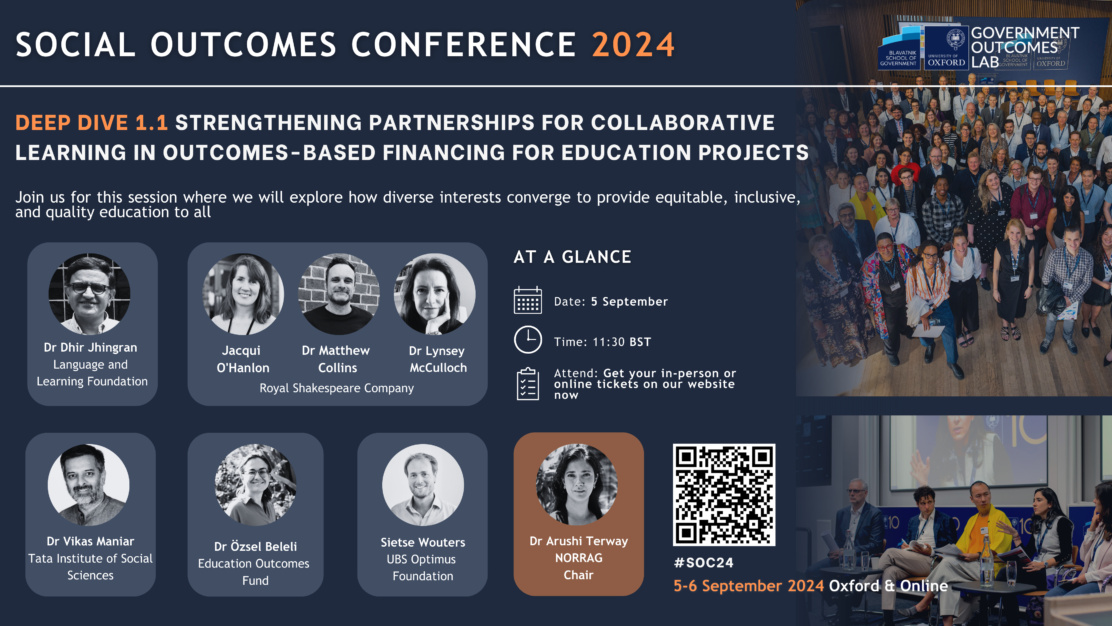
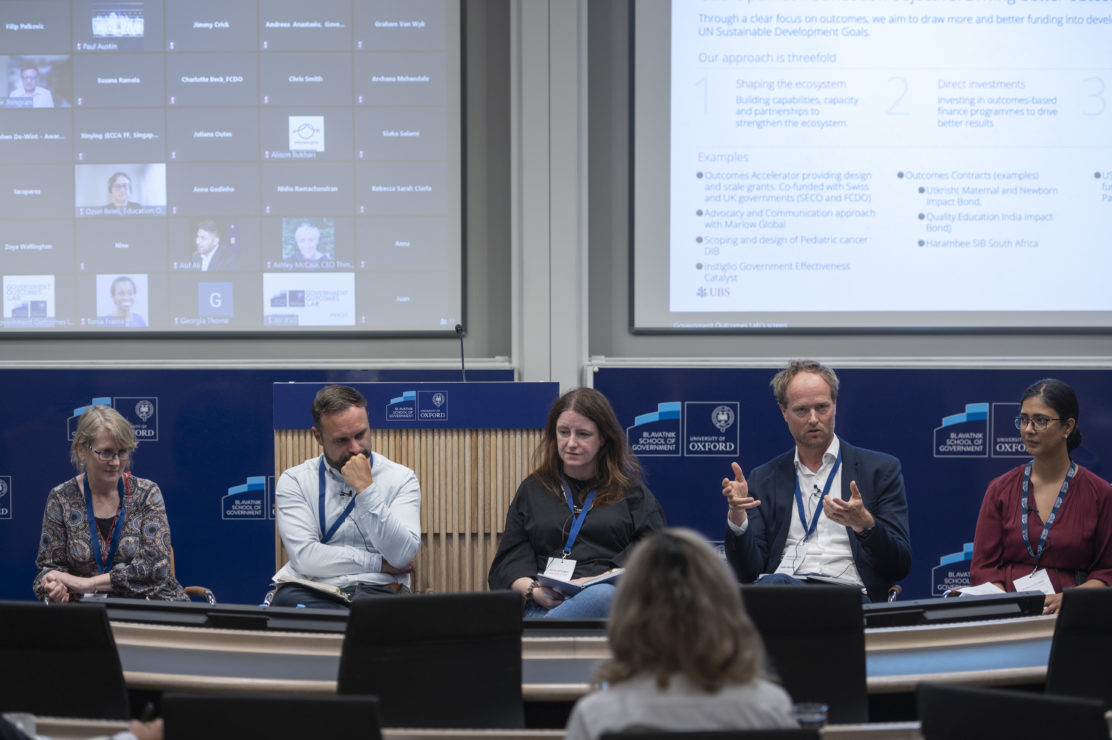
photo (c) John Cairns

photo (c) John Cairns
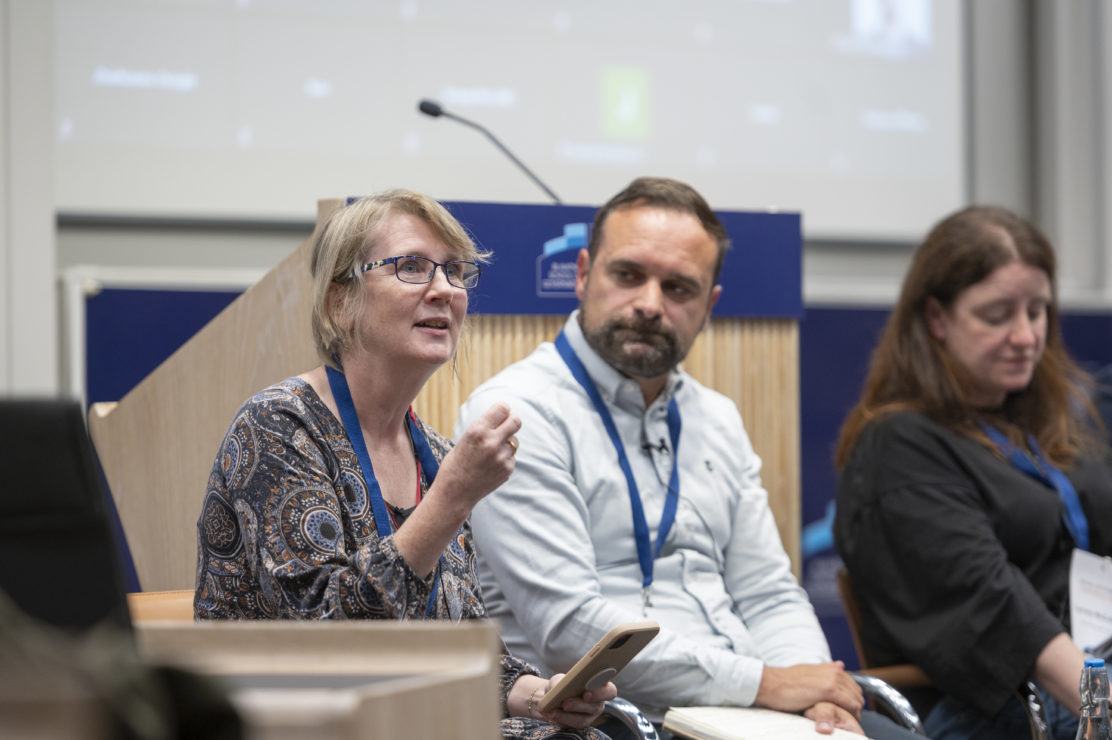
photo (c) John Cairns
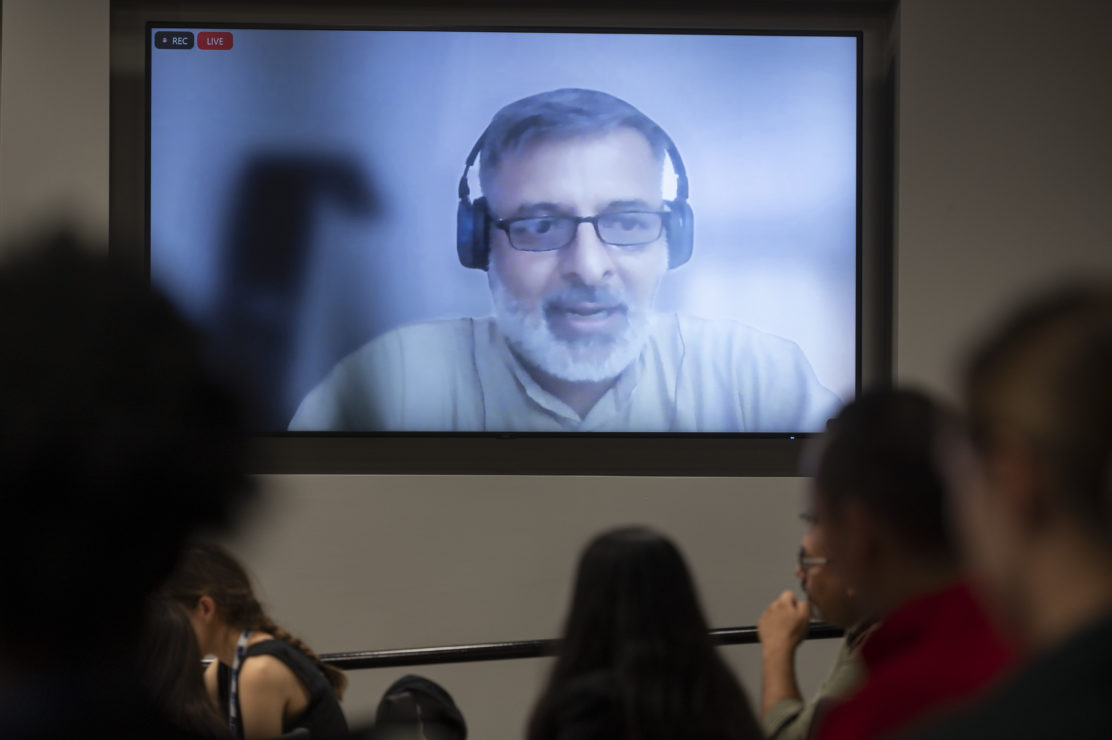
photo (c) John Cairns

